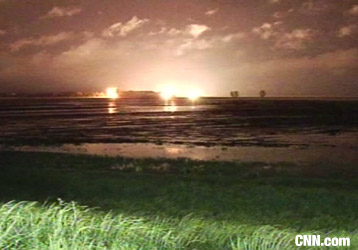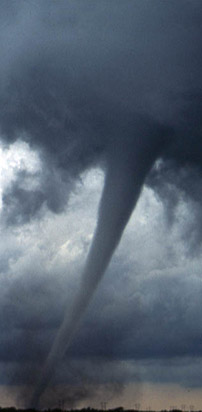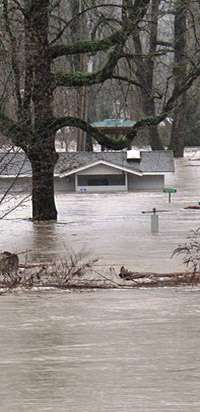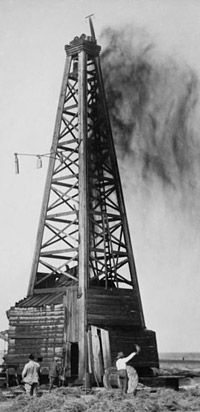
 For nearly a century we have managed waterways within an inch of their lives. But this week, officials blasted that control to allow a floodplain to serve its natural function.
For nearly a century we have managed waterways within an inch of their lives. But this week, officials blasted that control to allow a floodplain to serve its natural function.
Could this is the beginning of a movement toward more rational floodplain development, where cities build parks instead of buildings in floodplains, or direct small floods to nourish fields before crops are planted?
It’s important to remember that the flooded land is an engineered floodway. The blown-up levee was specifically constructed with a cavity to hold explosives so it could be removed quickly in an emergency like this one. In other words, we simply saw an engineered flood control structure put to use for the first time in more than 70 years.
What’s missing in the coverage: The media was quick to show images of inundated homes and farm structures. But I saw little reporting on development standards and flood insurance requirements for those who live in the floodway. What is FEMA's flood insurance rating for this area? Are property owners required to purchase flood insurance? If not, why? Are there any local building requirements to protect structures from flooding?
Factoring in climate change: Climate change is predicted to increase the frequency and severity of floods in many areas. I expect to see more regulation of floodplain development and calls for investment in floodways, bypasses and setback levees to manage future floods that may be bigger than we predict.
Click to read more about this topic
This story has mostly focused on the “farms vs. families” debate. But the elephant in the room here is climate change. Climate models predict that precipitation is likely to come in heavier deluges, increasing the severity of floods. That change is exacerbated by other human-made factors, like draining wetlands for farmland.
I’m watching … politicians in the Mississippi Valley who have a history of voting against climate policy. I’ll be looking to see how they react to the disaster in their own backyards—does this change anything?
Required reading: Although it’s only tangential to the current levee topic, John McPhee’s “Atchafalaya” (see link below) is absolutely worth the 45-minute read to learn about the history of Mississippi flood control. All of the big issues are there.
Click to read more about this topic
| Tweet This Page |










